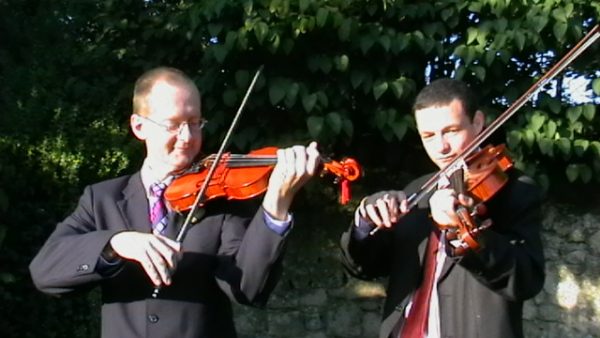Teaching Violin at Junior Trinity School of Music
Teaching Violin at Junior Trinity School of Music РA couple of weekends ago, I was asked by a colleague to step in and cover his violin teaching commitment at Junior Trinity School of Music in Greenwich. This specialist music school takes place every Saturday throughout term time. Like the departments at the Junior Royal College of Music, the Junior Royal Academy of Music and the Junior Guildhall School of Music and Drama, it attracts talented and motivated pupils who give up their Saturday mornings to have instrumental lessons as well as participate in chamber ensembles, choirs and orchestras.
Although Saturdays are chosen in preference to Sundays, in order to minimise any potential disruption to weekend family life, this does have an adverse effect on lessons in general. The reason is that the majority of instrumental and vocal teachers are freelance musicians and, by and large, Saturdays are their busiest working days. This means that they inevitably have to ‘dep out’ (or find someone to deputise) for some of the teaching which clashes with ‘tied’ dates (generally orchestral commitments of more than one day) and tours. Personally, I feel it’s wrong as students deserve to have the same teacher throughout a year, in order to provide consistency and an overall view of the student’s development. It is however, in this circumstance, absolutely unavoidable.
The key in deputising for another teacher is in respecting their methods and not instigating any changes that could lead to a disruption of the student’s¬†progress. It’s a fine balance between giving them an alternative perspective, but without undermining their current learning. New ideas can be suggested and interpretative insights can be shared, but the deputising teacher has to be very careful not to instigate any technical changes that will immediately be contradicted when the main teacher returns. This can be challenging, particularly when a fresh set of eyes and ears are able to perceive faults that may encumber a student’s musical progress. In a way, having a fresh¬†viewpoint a couple of times a term is not an entirely bad thing for a young musician, but it has to be a responsive one which is open to new ways of experiencing music.
I find that the inspiration of Kato Havas’s ‘New Approach’ works wonders in these ‘one off’ sessions. After all, every musician benefits by constant internal singing, connecting completely with the rhythmic pulse, feeling the drama of the melodic intervals¬†and allowing their imaginations to be opened up. The journey that a piece of music leads us on, with it’s storyline, atmospheres, scenes and emotions can¬†allow us all¬†to go beyond the intimidating black dots of the written music. As Kato said recently, ‘. . .we are like Alice in the looking glass, trying to get behind the music to what lies beyond’.
I thoroughly enjoyed my morning with the five pupils I taught and look forward to returning if the need arises in the future!

